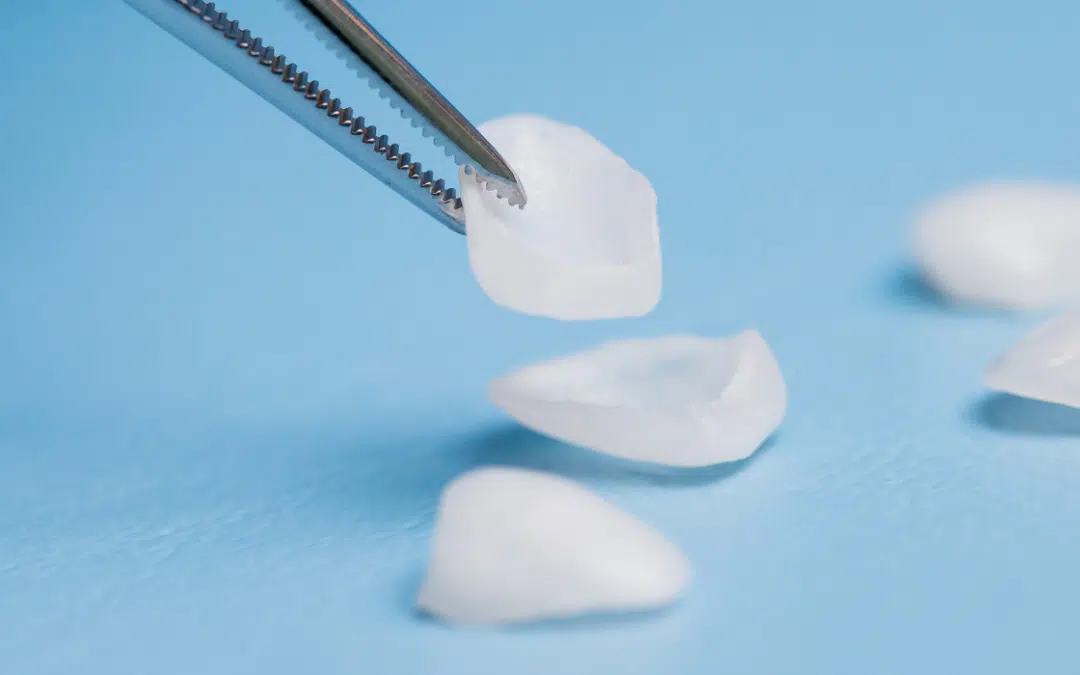Porcelain Veneers VS. Composite Veneers
Choosing the right type of veneers for your smile transformation can be tough, but we’re here to make that decision easier. At our clinic, we specialize in Porcelain Veneers, and we believe they are the superior option for achieving a stunning, long-lasting smile. Here’s why Porcelain Veneers stand out from Composite Veneers:
WHAT IS A PORCELAIN VENEER?
Porcelain Veneers are thin shells of porcelain that are attached to the outer-surface of the tooth. Porcelain Veneers are an extremely popular option among people looking to whiten and brighten their teeth. The translucent properties of high-quality ceramic porcelain allow the veneer to catch the light extremely similar to the way the natural tooth does.
Porcelain Veneers are stain resistant, which means no more whitening of your teeth to get that Hollywood smile! They have a higher upfront cost compared to Composite Veneers, because they take a greater amount of time, experience, and resources to apply.
Advantages:
- Long-lasting (generally 10 – 30 years)
- Colour remains constant over time
- Stain resistant
- Cover most imperfections (gaps, chips, and stains)
- Durable and scratch resistant
- Similar texture and feel to natural teeth
Disadvantages:
- Natural teeth need to be slightly filed down
- Porcelain Veneers are not reversible
- Initial outlying cost is more expensive
WHAT IS A COMPOSITE VENEER?
Composite Veneers are made from engineered resin that is affixed to the outer-surface of the tooth. If cared for correctly, Composite Veneers can last 7 – 10 years and are preferred by clients wishing to make minor modifications to their smile.
Composite Veneers are durable, but not as strong as Porcelain Veneers. If not cared for properly, they can be prone to chipping. It is important to note that resin stains just like natural teeth. Therefore, care must be taken when eating and drinking certain items (always remember to maintain good oral hygiene by brushing and flossing regularly.
Advantages:
- Less tooth preparation required
- Treatment can be completed in one visit
- Cheaper upfront cost
Disadvantages:
- Shorter lifespan (7 – 10 years if cared for correctly)
- Susceptible to chips and cracks
- Can be stained (not suitable for coffee or red wine drinkers)
WHY CHOOSE PORCELAIN VENEERS OVER COMPOSITE VENEERS?
While Composite Veneers might seem like a convenient choice due to their lower upfront cost and single-visit application, they do not offer the same longevity, durability, or aesthetic appeal as Porcelain Veneers. Composite Veneers are more prone to staining, chipping, and wear, which means they often require more frequent replacement and maintenance.
CONTACT US
Investing in Porcelain Veneers is a decision that pays off with a lasting, beautiful smile. Our team of qualified and experienced cosmetic dental experts is here to guide you through the process, ensuring you achieve the best possible results.
To find out whether Porcelain Veneers are right for you, please fill out our Online Assessment Form so we can organise a FREE Cosmetic Dentistry recommendation.
Disclaimer: Any information provided should be used only as an information guide and not CosMediSmile giving advice. Please ensure you do your own valid research and seek advice from expert Cosmetic Dentists to enable you to be fully informed.

